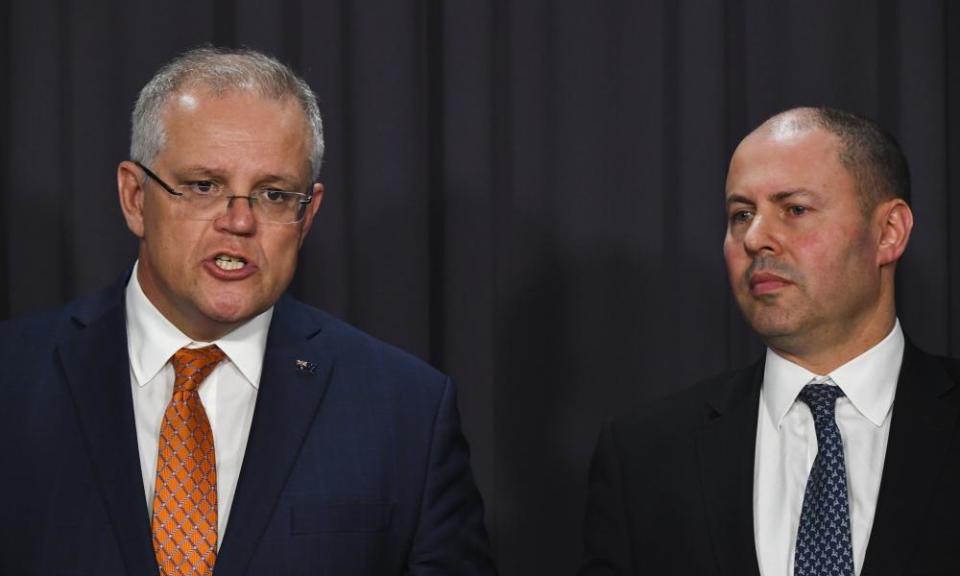The truth about budget surpluses: it's revenue, not spending, that counts

The history of the budget since the 1990 recession is a story of revenue, and has barely anything at all to do with “management”.
Since 1990 every single one of the 10 years the budget has been in surplus or balance, government revenue was 24.5% of GDP or higher. And every year when revenue has been lower than that amount, the budget has been in deficit.
We truly spend too much time worrying about the budget balance. Most of the commentary on the budget implies that the government is somehow in control of all the factors that determine whether a surplus or deficit is delivered.
They are not and have never been.
To suggest that a budget surplus is a sign the government “can manage the economy” is looking for order in chaos; and for causation when there is mostly coincidence.
During the Howard government, the mining boom saw revenue soar as high as 26% of GDP. In its final year, even with massive tax cuts, revenue was still 25% of GDP.
The Howard government played no role in creating this tidal wave of revenue unless you believe they were able to cause a huge increase in demand for iron ore within the Chinese economy.
By contrast, in 2010-11 government revenue was just 21.3% of GDP. That didn’t happen because the Rudd government massively cut taxes – but because there was a massive drop in company profits and income due to the GFC.
Had the Rudd government the same level of revenue as the final year of the Howard government, Wayne Swan would have had around $52bn more to play with. Because spending that year was just 24.4% of GDP, the budget would also have been comfortably in surplus.
Just how irrelevant spending is can be seen by the fact that spending in 2010-11 was lower than it was last year, and yet last year there was a balanced budget, while in 2010-11 the deficit was 3.4% of GDP.
So let us stop pretending a budget surplus is about management. At the fringes it might be, but mostly Australian governments are hostage to events – which the Morrison government has now discovered to their detriment.
Their much-boasted-about budget surplus looks to be gone.
That Frydenberg and Morrison crowed they had delivered a surplus before actually doing so just means they are guilty of extreme levels of hubris rather than budget mismanagement.
The real budget debate should be over the size of the deficit (or surplus).
A budget deficit stimulates the economy; a budget surplus slows the economy down.
Right now the big problem is not the lack of a budget surplus but the fact our economy was already struggling even before the coronavirus showed up.
A budget deficit right now would allow for a strong fiscal response to help counter the impact of the virus. But Scott Morrison said this week: “I can assure taxpayers … that we’re not a government that engages in extreme fiscal responses.”
Why not?
Does he believe a situation where our tourism, education and mining sectors are being hit by a possible worldwide pandemic is not extreme enough?
Related: We seem resigned to low wages growth but heroic budget predictions roll in | Greg Jericho
Data this week showed that even before the impact of the coronavirus, construction and investment was falling across the economy. The annual growth of both total and full-time employment is now the slowest it has been since 2017. And the underutilisation rate of workers has risen from 13.0% in February last year to 13.9% – the fastest jump for three years.
The economy is limping and the coronavirus is in danger of turning the limp into a break.
By Thursday the prime minister was talking of “targeted, modest and scalable” stimulus, though with no actual explanation of what that might involve other than “looking ahead over the next few months”.
Alas, previous economic downturns have shown that “the next few months” will likely be too late.
The past 35 years show us that whether a government delivers a surplus is due mostly to luck and good revenue; not management.
Real economic management is not about worrying about whether the budget is in surplus but what you do while the economy slows and looks in danger of grinding to a halt.
Greg Jericho writes on economics for Guardian Australia

 Yahoo Finance
Yahoo Finance 